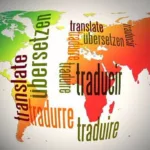If you watched the first (and maybe the last) US Presidential Debate, you saw a lot of drama, but what you didn’t see was an actual debate. You also didn’t see any real engagement by the constituents that both politicians were trying to win over. While it is hard, given there was no real debate, to take a position that anyone in this effort won. Biden, the challenger for President, gained the most significant benefit from moving from a single digit to a double-digit lead in most surveys. One of the things that might have enhanced this debate would have been a process whereby US voters could participate at scale. Any effort would depend on the folks both watching and being willing to participate in the process, but dealing with scale is what computers do, and an AI might be able to both roll up a crowdsourced position and crowdsourced questions.
This problem doesn’t just exist for Presidential Debates, this week, I’ve been attending two large events, and both struggled with getting questions answered. The bigger the audience, the harder it is to address everyone’s questions. I’ve been on calls with up to 100K participants, and getting my question answered seemed to have around the same odds as winning the lottery. After a few failed attempts rather than being engaged, I began to think my attendance was a waste of time. Since with audiences of this site, you get a lot of similar questions, and you could, after the fact, determine which were the most powerful, finding a way to do that same thing in real-time could fix this problem. And here again, AI would seem to be the ideal solution to this problem.
IBM is positioning their Watson solution, Project Debater, against problems like this, and they showcased this capability with Bloomberg this week.
That’s Debatable
Bloomberg has a new TV program called “That’s Debatable,” It is backed up with IBM’s Project Debater. This use of Project Debater allows Bloomberg to take extensive on-line surveys before or during a show and have the key points from the survey available in real-time and on the show. Watson then sorts the arguments by strength and ranks the results allowing the moderator to pick the highest quality arguments by popularity.
This technology then allows Bloomberg to engage at scale with its audience, who has a far higher probability of having their arguments heard and addressed. Plus, it adds a richness to the event as the crowdsourced positions may find interesting arguments that otherwise would not have surfaced.
While this should make for an exciting show, you can find out more about this program and participate in the process here, but this technology could also help fix one of Facebook’s big problems and significant vendor events. Let’s take each in turn.
Facebook vs. Facebook Employees
Both Facebook and Google have had internal revolts by employees who feel their firms are on the wrong path. Both firms have vast numbers of employees and no leaders’ ability to engage with these employees at scale effectively. Project Debater applied to the problem and could rank the employees’ questions by quality (separating arguments from ad hominem attacks, for instance) and then by frequency. This process would allow the executives to address, depending on time, the best arguments that are also the most common, while also being able to see a ranking on quality potentially changing their minds. So the executives would not only gain a deeper connection with their employees. They’d be more able to mine those employees for ideas and approaches as well.
For instance, Mark Zuckerberg, Facebook’s CEO, struggles with removing Fake News from his site, and his employees are upset with his progress. While talking to his employees, he could have Project Debater aggregate the complaints by quality and frequency, thus allowing him to address the more pertinent issues. Mark could also ask the employees for recommendations on balancing that effort with avoiding excessive censorship. He’d get back a ranking of ideas by quality and frequency, and that would at least provide a sense of what his employees wanted to see, but it might also provide one or more new ways to address the problem more effectively.
This technology could not only supercharge the suggestion box; it could provide a level of crowdsourced insight and help that every company has within it, but mostly never uses. In this way, Watson could access the employees’ collective minds’ power and turn them into compelling results.
Vendor Events
But now think of Vendor Events, which are not virtual. You have thousands of people attending what is mostly the event of a vast sale, but engaging those at scale, or making sure one of the potential buyers doesn’t drop through the cracks, is almost impossible. Using Watson, attendees could be engaged at scale either through email or during keynotes and sessions. Here questions could be ranked though; in this case, you might want to add account value to the analysis, so you got a ranking where the best question from the most valuable account that was also the most common always got answered. This information would also give you a sense of how satisfied the audience was with the event, which was the most interesting. You’d also get, based on engagement, which sessions most effectively promoted the product offerings so the related practices could increase overall event effectiveness.
Wrapping Up: Engagement And Knowledge Mining At Scale
IBM’s Watson platform is arguably the most powerful Enterprise AI solution in the market; it is the most mature. What Project Debater adds is the ability, with relatively little work, to turn written interactions at scale into useful assets. Whether we are talking about TV shows like Bloomberg’s “That’s Debatable,” political debates, interactions with employees, or vendor events into far more interactive and powerful tools. Rather than just being able to handle a few questions that aren’t interesting to most, the application of IBM’s Watson could turn those engagements into far more meaningful and powerful events. These events wouldn’t just improve interaction but could be a huge source of new ideas and approaches that otherwise would have never been identified.
Watson’s application is a clear example of IBM’s strategy with AI, turning it into a tool that enhances employees and executives rather than replacing them. In the end, this concept of turning large numbers of people into an information source in real time could have broad implications ranging from elections, to corporate governance, to social responsibility, to innovation. Project Debater may be a little known tool now, but it has the potential to become one of the most powerful tools a company or a party could use in the future.








